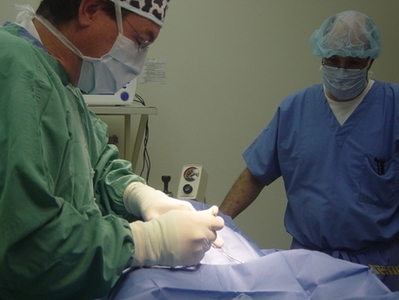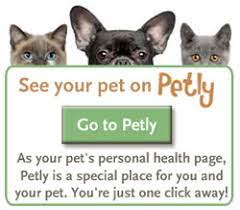Neuter (Orchidectomy)

An Orchidectomy (Neuter) is the removal of the testes.
Dogs:
Current research shows that removing the testicles of your pet at a young age completely eliminates all chances of testicular cancer. Furthermore, by removing the source of the male hormone (testosterone) from the body, we reduce the incidence of prostate disease and tumors involving the anal area and tail gland. As male dogs age, the prostate enlarges which can lead to constipation due to pressure on the colon, and bladder infections due to irritation from the prostate.
As male dogs reach puberty, various secondary characteristics and behavioral changes can be observed. Some of these include undesirable aggression toward people and/or other dogs (especially male dogs), leash pulling, and humping behavior. An intact male dog may also have a tendency to "mark his territory" or urinate in inappropriate places. If such behavior is allowed to continue as dogs age, the behavior becomes learned and our chances of eliminating such behavior by neutering are greatly reduced.
Male dogs have been known to wander many miles from their neighborhoods, led instinctively by their attraction to female dogs in heat. Neutered dogs show a reduced desire to roam. Keeping these dogs at home helps to ensure their safety as well as helping to eliminate unwanted pregnancies.
Cats:
Once male cats reach puberty, a number of behavioral changes make him less desirable as a pet. He will become more territorial and start to mark areas even inside the house by spraying urine. Male cat urine has a very offensive strong odor that is difficult to remove. Un-neutered cats also have a tendency to roam and try to escape outdoors. They often engage in fights with local cats which may result in bite wounds or more serious injuries and infectious diseases. Diseases such as FIV and FeLV are more common in un-neutered male cats and are incurable and fatal diseases.
Churchville Veterinary Hospital recommends that your male puppy or kitten be neutered between 4 - 6 months unless otherwise specified by the doctor. We preform this surgical procedure on Tuesday and Thursday mornings. We will schedule a time for you to drop your pet off that morning. We perform all the necessary bloodwork to ensure the safest anesthetic outcome. Your pet will go home with you on the same day with written after care instructions.
Office HoursMonday: 8:00 am to 5:00 pm Tuesday: 8:00 am to 7:00 pm Wednesday: 8:00am to 5:00pm Thursday: 8:00 am to 7:00 pm Friday: 8:00 am to 5:00 pm Saturday: Closed Sunday: Closed In the event of a medical emergency outside our normal business hours please visit: Contact Us-Emergency Information |
|
Site powered by Weebly. Managed by IDEXX Laboratories





